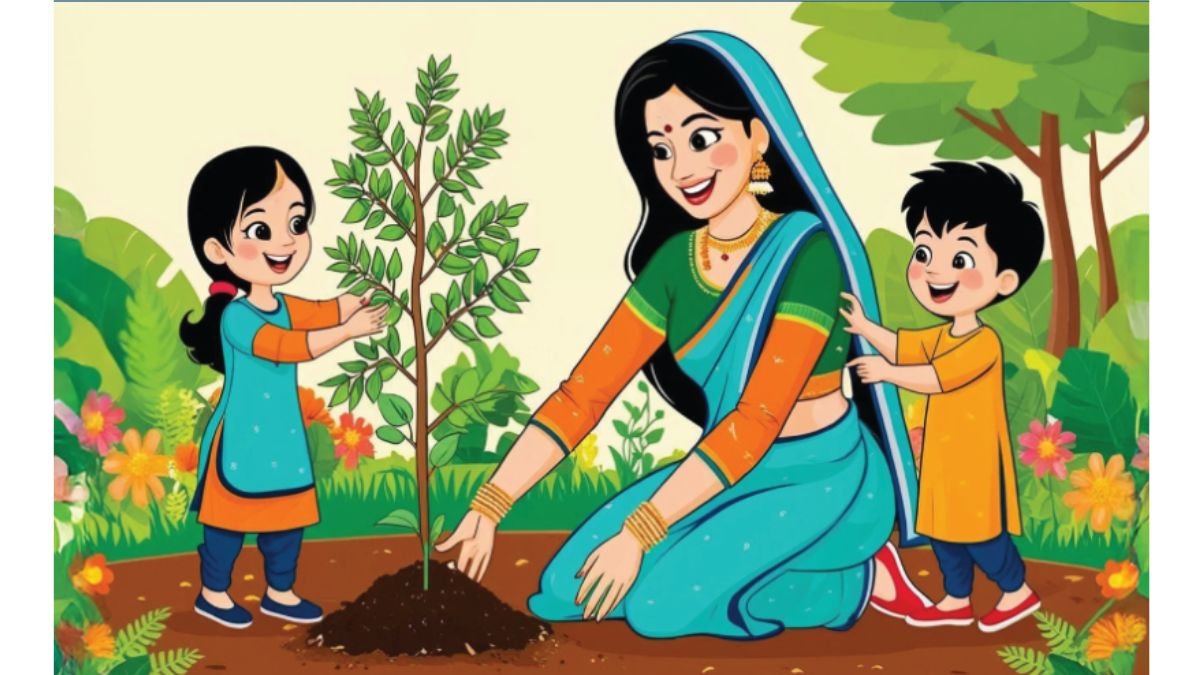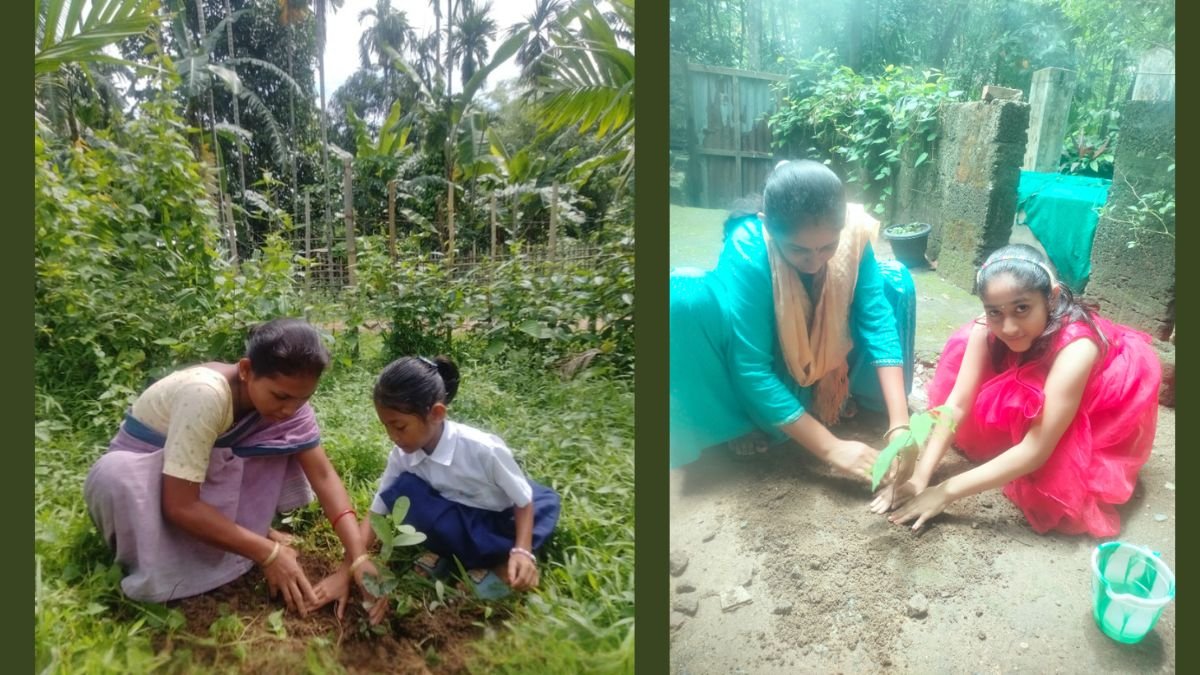
India’s Green Revolution: How Ek Ped Maa Ke Naam Is Transforming Environmental Conservation
The Ek Ped Maa Ke Naam movement has become one of the most effective environmental trends in India, which unites emotional piety and ecological consciousness. This radical campaign asks citizens to plant trees in honour of their mothers, which will make a strong bond between motherly affection and environmental care.
The Philosophy Behind the Movement
In essence, the initiative identifies the deep similarities between trees and mothers. Both are life-givers, nurturers and protectors of future generations. Environmentalist Sunita Narain notes that when we plant a tree in the name of our mother, we are recognising the universal reality that mothers and nature are life givers who do so without any conditions.
It is not just the symbolic act of planting a tree. It is a cultural change to the appreciation of conservation of the environment as a religious obligation, just like the respect for parents. This has been a profoundly touching element among the various communities in India, including the urbanised millennial generation and the rural farmers.
Environmental Impact and Scientific Benefits
Through this initiative, trees do a lot in carbon sequestration activities, and an average mature tree can absorb about 48 pounds of carbon dioxide in a year. Similar outcomes have been achieved in regard to the quality of air, especially in the metropolitan regions where the pollution is at an acute level.
According to recent research, regions that have been involved in the Ek Ped Maa Ke Naam program have 15 per cent higher air quality indices than the non-participating regions. The project also aids in the conservation of biodiversity through the establishment of green corridors linking biodiversity fragments.

Community Participation and Social Impact
The movement has seen the highest community involvement ever along socioeconomic lines. Schools also hold plantation drives where students pay respect to their mothers in the process of learning how to take care of their environment. Companies have been incorporating the project into their corporate social responsibility initiatives, which have helped in the massive planting of trees.
Rural populations have taken the notion to heart, mainly because they consider it a continuation of traditional values that put reverence on both motherhood and nature. These self-help groups of women have also emerged as stakeholders, and the initiative has turned into an economic empowerment venue, through nursery development and tree-maintenance programs.
Technology Integration and Modern Outreach
The Ek Ped Maa Ke Naam movement uses the digital platform to gain maximum visibility and influence. Mobile apps will enable users to sign up for plantations, monitor the level of growth, and exchange experiences with a larger community. Planted saplings can have QR codes to monitor long-term and coordinate their care.
The social media campaigns have intensified the message of the movement, and influencers and celebrities post their plantation stories. This online campaign has been especially successful when it comes to attracting younger audiences who might not otherwise be interested in environmental campaigns.
Economic Dimensions and Sustainable Development
Outside the positive effects on the environment, the venture creates huge economic opportunities. The local nurseries report that there are more native sapling demands, and new jobs are created in the areas of tree care, surveillance, and similar services. The program is in line with the intentions of India to establish 235 million hectares of new forest cover in India by the year 2030.
The initiative helps agricultural communities to have healthier soil and better water retention where the fruit-bearing trees have been planted. This helps in increasing food security as well as respecting the maternal figures who are the ones who tend to take care of household nutrition.
Challenges and Future Expansion
Regardless of its success, the Ek Ped Maa Ke Naam initiative is characterised by such challenges as the long-term survival of trees, the elimination of encroachment, and continuous community involvement beyond the scope of the initial planting period. The reaction to this has been the introduction of follow-up programs by the organisers and the setting up of local guardian networks.
Expansion plans involve international outreach to the Indian diaspora communities and partnering with environmental bodies across the world. The project is to plant 100 million trees by the end of 2025, making it a global example of how communities can conserve the environment.
Government Support and Policy Integration
The potential of the initiative has gained acceptance among the state and central governments, where it is now a part of the official environmental policies. Large-scale implementation has been funded and monitored by the Ministry of Environment, Forest and Climate Change, which has given technical assistance.
Policies have been revised to accommodate land allocation, access to water and maintenance support of community-based plantation schemes. This institutional support has greatly promoted the sustainability and scalability of the initiative.
Conclusion: A Legacy of Love and Environmental Stewardship
The Ek Ped Maa Ke Naam program is not about environmentalism per se, but rather a cultural revival that bridges the gap between old and new environmental issues. Participants leave a legacy by celebrating mothers by planting trees, and this serves their families and the planet as well.
The movement, which has been growing and growing, proves the power of emotional bonding to take positive action in the environment. The trees planted will be the living memory of the maternal love and will help make India more resilient to climate change and restore ecology.
